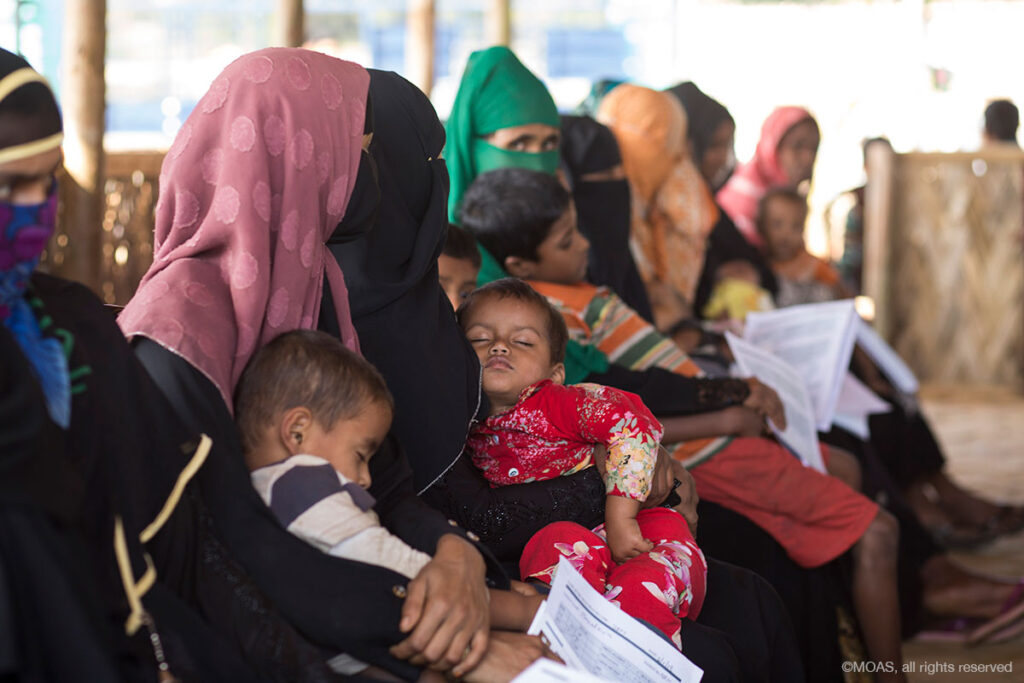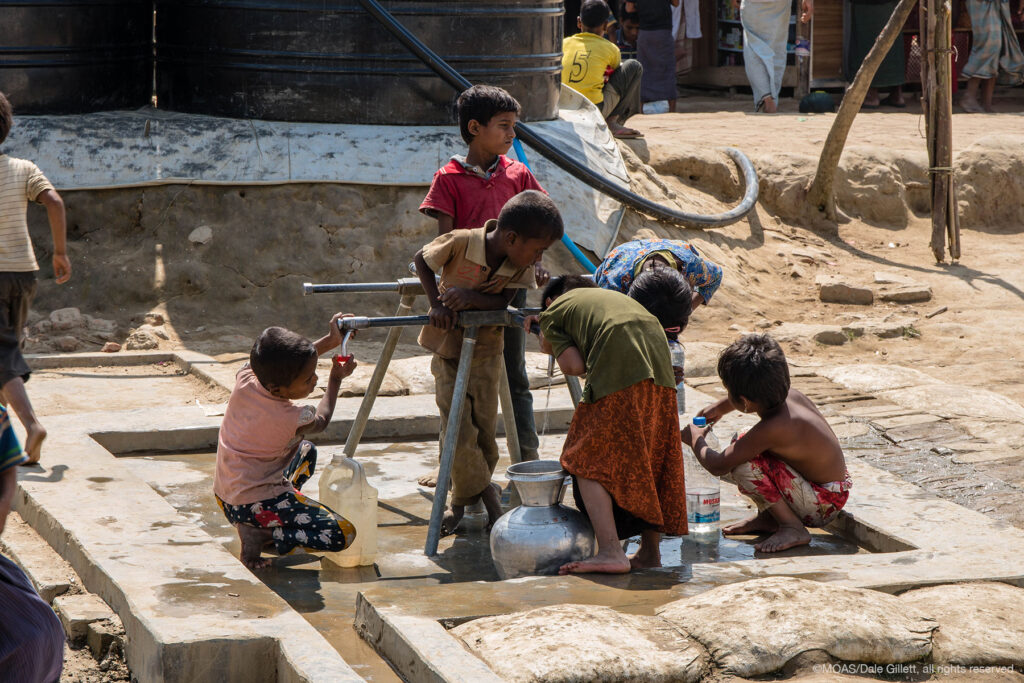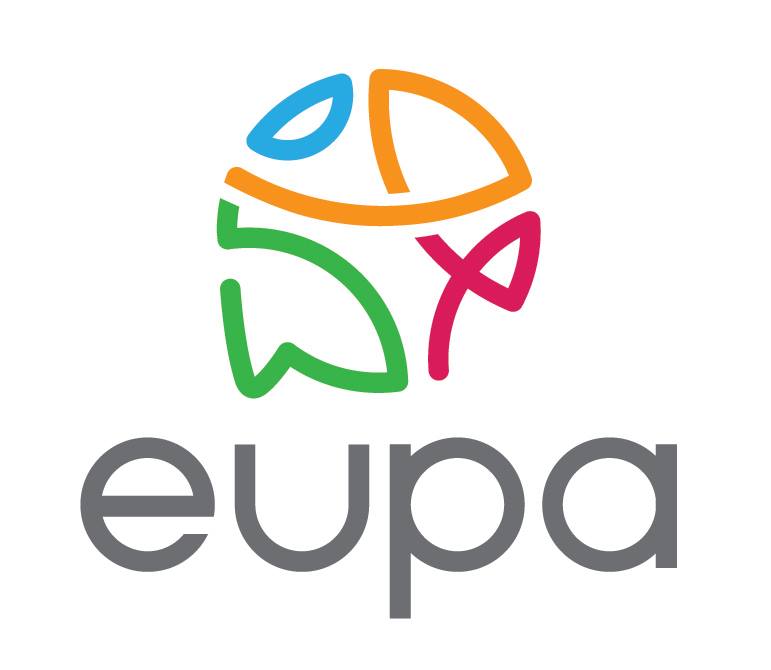Two years have passed since the start of the latest Rohingya refugee crisis, and the displacement of over 700,000 people from Myanmar to Cox’s Bazar, Bangladesh. As time passes, the situation has changed from an acute humanitarian emergency to one of protracted crisis, bringing new challenges for the Rohingya and the agencies attempting to intervene. Focusing on two of the major issues arising from the protracted nature of the crisis – health and education – we can explore in depth the impacts that they are having on the daily life and long-term prospects of the refugees stuck in limbo in Cox’s Bazar
Health
As well as migration itself being a social determinant of health, the conditions and social circumstances in which the Rohingya are living in the refugee camps also determine health outcomes. Cramped living conditions, inadequate access to clean water, good nutrition and sanitation and the lack of clean fuel sources for cooking are all major contributors to poor health outcomes. Such conditions are challenging during an emergency situation, but when that situation becomes protracted, the impact that they have on the health of residents is extended, leading to increased risks of disease outbreak and chronic negative health outcomes. Communicable disease outbreaks such as diphtheria, diarrhoea, respiratory infections and measles have been reported within the camps.
Daily health care needs have also changed and developed. When the first waves of refugees arrived, trauma care, treatment of acute conditions and the setting up of clinics was the priority. Today, longer-term health needs are also an urgent requirement and secondary healthcare, as well as emergency primary healthcare is needed. Chronic illnesses such as diabetes and high blood pressure need ongoing treatment, mental health support for victims of trauma and sexual abuse must be available, pregnant women need ante and post-natal care and children need to be vaccinated. Health care providers in the camp have to meet the changing demands of protracted crisis which can mean a complete overhaul of the original emergency healthcare system set up, with providers needing to re-evaluate and re-structure existing facilities. However, challenges have emerged – there is not an even distribution of health facilities throughout the camps, as the crisis nature of the development of clinics, did not allow for extensive planning of service location, and camps have grown in an ad hoc fashion. For Rohingya refugees living in more remote camps, there are often no medical services available. Additionally, health facilities may lack the capacity to deal with mass outbreaks of communicable disease or the long-term management of chronic illnesses, meaning that people may not be able to get the care that they need.
Education
Since arriving in Bangladesh, children and young people have been prevented from engaging in formal education. The government of Myanmar has forbidden Rohingya students from continuing their studies using the Burmese curriculum. Additionally, the Bangladeshi authorities, hoping for a repatriation deal to be reached soon and thus reluctant to encourage the integration of Rohingya students in the Bangladeshi school system, have denied students from accessing the Bangladeshi curriculum or from learning Bangla. However, as the latest repatriation attempt has failed due to opposition from the Rohingya after authorities in Myanmar refused to guarantee their rights on return, a workable solution for repatriation seems increasingly remote. The protracted nature of the crisis means that a generation of young people are spending years outside of the school system. Access to quality education is the fourth UN Sustainable Development Goals – it is a right that all children and young people have. By denying education to young Rohingya, this robs them of opportunities for intellectual, social and emotional development, it limits their future work prospects and denies them a sense of purpose, dignity and stability after displacement. It also places young people in danger: frustrated and marginalised young people have a higher chance of becoming radicalised or of becoming involved in criminal activities. Girls who are not in education are more likely to be forced into child marriages and are at increased risk of trafficking. Many studies have shown that one of the strongest links of demography is that between mother’s education and infant mortality, highlighting that by denying girls the right to education today, this will not affect only them, but also the next generation of children.
NGOs and community groups are attempting to fill the gap and offer provision of basic education in Cox’s Bazar, but no recognised accreditation can be gained from these efforts. Moreover, the distribution of service is not even and there is no set curriculum. This means that the quality of education varies greatly between providers, often failing to meet the needs of students. Even this limited provision of schooling is only allowed by the Bangladeshi government at primary school level, leaving older children and young people without any form of education. Of the 530,000 school-age Rohingya refugees living in the camps in Cox’s Bazar, only a quarter are accessing education of any kind.
Whilst the Rohingya wait for a sustainable, long term solution to be reached, more must be done to support and to meet their immediate needs. Opportunities lost now will have repercussions far into the future – life cannot stop because of displacement. MOAS’ previous health care missions and it’s current community training programmes are providing vital support and skills development within the community. We will continue to stand in solidarity with the Rohingya, building capacity and hope within the community.
If you are interested in the work of MOAS and our partners, please follow us on social media, sign up to our newsletter and share our content. You can also reach out to us any time via [email protected]. If you want to support our operations, please give what you can at www.moas.eu/donate.



